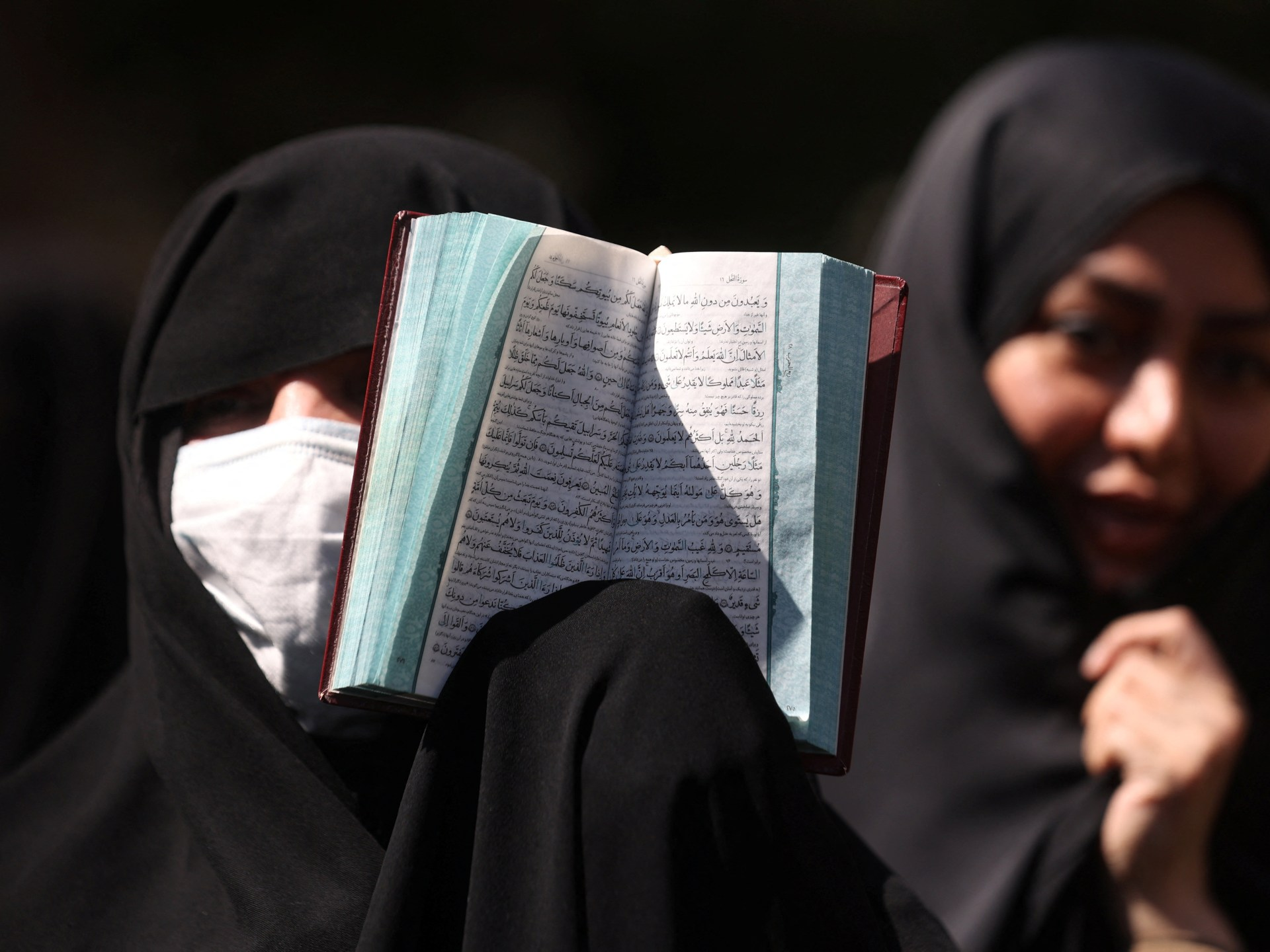The Danish government will try to find legal means that will enable authorities to prevent the burning of copies of the Quran in front of other countries’ embassies in Denmark, Foreign Minister Lars Lokke Rasmussen has said.
“The burnings are deeply offensive and reckless acts committed by few individuals. These few individuals do not represent the values the Danish society is built on,” Rasmussen said in a statement on Sunday.
“The Danish government will therefore explore the possibility of intervening in special situations where, for instance, other countries, cultures, and religions are being insulted, and where this could have significant negative consequences for Denmark, not least with regard to security,” he said.
Denmark and Sweden have found themselves in the international spotlight in recent weeks following protests where the Quran, the Islamic holy book, has been damaged or burned.
In a separate statement on Sunday, Swedish Prime Minister Ulf Kristersson said he had been in close contact with his Danish counterpart Mette Frederiksen, and that a similar process was already under way in Sweden.
“We have also started to analyse the legal situation already … in order to consider measures to strengthen our national security and the security of Swedes in Sweden and around the world,” Kristersson said in a post to Instagram.
Outrage in Muslim countries
This month, far-right activists have carried out a number of public burnings of Islam’s holy book in front of the Iraqi, Egyptian, and Turkish embassies in the Danish capital.
On Monday, two members of the ultra-nationalist Danish Patriots stomped on a copy of the Quran and set it alight in a tin foil tray next to an Iraqi flag.
Earlier this month in Sweden, an Iraqi citizen living in the country, Salwan Momika, 37, stomped on the holy book and set several pages alight.
The public burnings in the Scandinavian countries have sparked widespread outrage across Muslim countries, with Saudi Arabia, Turkey, the United Arab Emirates, Iran, Morocco, Qatar and Yemen lodging protests in response.
Sweden and Denmark have said they deplore the burning of the Koran but cannot prevent it under their rules protecting freedom of expression.
The United Nations Human Rights Council (UNHRC) earlier this month approved a resolution on religious hatred and bigotry following several burnings.
Pakistan and other Organisation of Islamic Cooperation countries backed the motion, along with a number of non-Muslim majority countries including India and Vietnam. The United States and the European Union opposed the resolution on the grounds it interfered with freedom of expression.
In his statement, Rasmussen added that whatever measure was taken “must of course be done within the framework of the constitutionally protected freedom of expression and in a manner that does not change the fact that freedom of expression in Denmark has very broad scope”.



There is a line somewhere. Saying that there is or isn’t a god is fine. I don’t think that’s an action which attempts to provoke aggression. But bringing out their most cherrished symbol and burning it is more of a declaration of hate. If the hate was narrowly directed at a specific leadership of state or a system, that would make sense, but burning the Quran targets so extremely widely. While I don’t think the act should be illegal, I don’t like the idea of declaring a wide range of hate.
Yes, the embassy property line. This isn’t confusing at all to me. I attended a Catholic funeral a few months back. I sat in the back. I didn’t pray. I didn’t tell the priest that his life was a lie and he works for pedophiles. I was respectful the whole time but apart. When you are in their building you follow their rules. Their rules end at the property line.
And that is your opinion but we are talking about the law right now. What you are not seeing is that religion is the default position and needs no help from the government. My atheism to you might not be offensive but it is to others. Large parts of the world would execute me for it. Once we establish that religious sensibilities matter more than natural rights- well people like me are fucked. As are homosexuals, women who don’t want to wear a veil, and many others.
The problem with defending rights is you find yourself defending terrible people. Regular people don’t generally need their rights defended. It is the worst of us that do. You seem of a Christian background. What does Jesus say when asked why he is hanging out with the criminals? I donate to the ACLU and I know they have defended people that I would be happy never meeting. No one is asking you to like religious desecration, what you are being asked to do is tolerate it.
Just to establish my background: I am by no means religious. I gave up my family’s christian background almost 20 years ago, and I don’t have any personal interest in religion. Like you, I attend whatever ceremonies that occur in religious ground with respect and without religious participation. My point of view is only based on personal respect.
I agree that there shouldn’t be laws against these acts. State interruptions of peaceful/non-violent protests should not be a thing.
My point is that I get the sense that people are actively hosting protests which hit a much larger target than intended. Burning Qurans used to be an act of racist groups in my country, but somehow it has moved to something that people celebrate as a symbol of freedom of speech. I just find it unfortunate that the society celebrates an act which also targets peaceful integrated sunni muslims who has no intentions of forcing sharia or ancient rules upon the rest of the society.